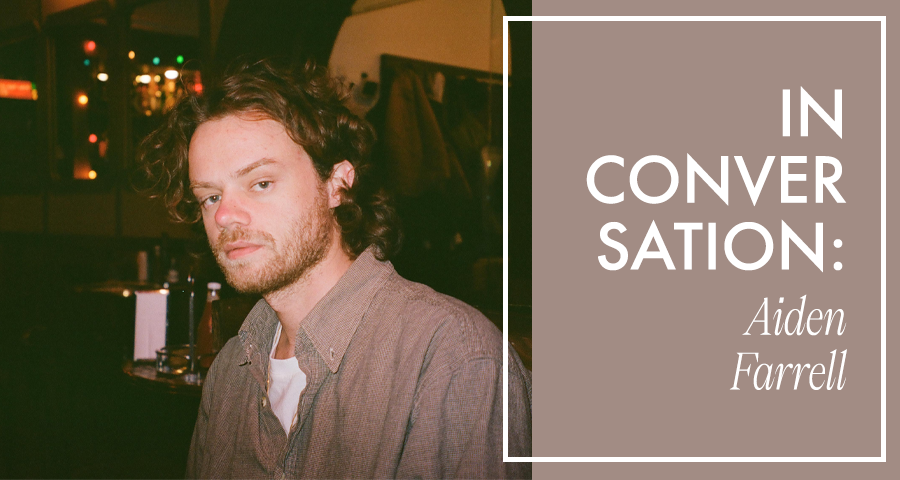The Vitals, written by Marie de Quatrebarbes and translated from the French by Aiden Farrell, examines the chasm of loss and desire to “conjugate the moments outside of me, spent so far from you, with this distance that is ‘I see’ and you who are ‘so far from me.’” Written in lyrical, diaristic fragments that take place between July and December, the poems certify de Quatrebarbes as a master of the short prose poetry form, which she imagines as nestled matryoshka dolls. Each poem is titled with the day of the month as the speaker lives her life and thoughts intrude. “Say again, do mourners have a singular?” asks de Quatrebarbes, as she lives and re-lives: “The day of his departure–the eye simply wanted to take stock.”
Farrell’s English translation is a deft reflection of the poet’s angular and defamiliarizing experiments with syntax, discontinuity, and memory; in this interview, I spoke with him on the ongoing process of translational work, its intersections with his personal writing, and the ways in which de Quartrebarbes subverts language.
Tiffany Troy (TT): What is the act of literary translation to you?
Aiden Farrell (AF): I like that you’ve framed literary translation as an act, because that’s exactly what it is, and any definition that tries to go beyond the action of translation has to be taken with a grain of salt—which is to say that translation is nothing if not a process, necessarily changing from project to project and from translator to translator.
A writing practice necessitates a reading practice; translation is both at the same time, and also not exactly, because when I’m reading to translate I’m not reading as I otherwise would, and when I’m writing my translation I’m not writing as I otherwise would, but I’m still doing both. To varying degrees, every poem I read asks me to reinvent the way I read poetry, and calls attention to my standards for reading, and then also for writing. The same goes for translating—I have to reinvent, surrender just enough of my instincts that I can be open to receiving what the original poem is giving me, but also hold on just enough that I can respond accordingly. I have to disappear so as to appear, only a second later. READ MORE…

